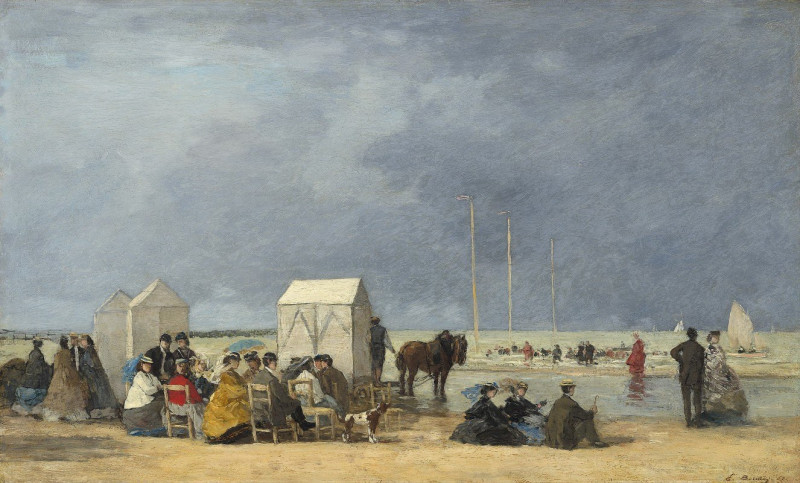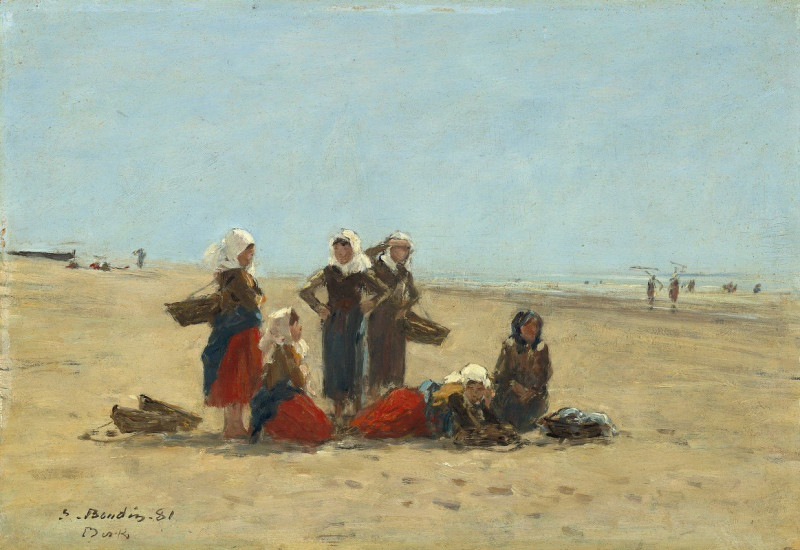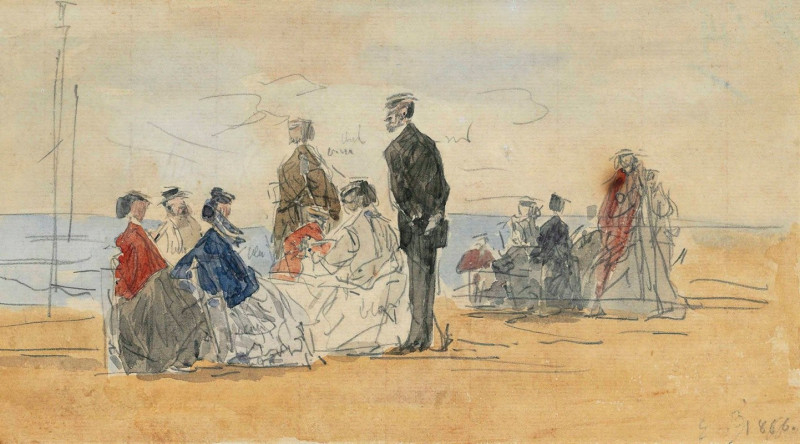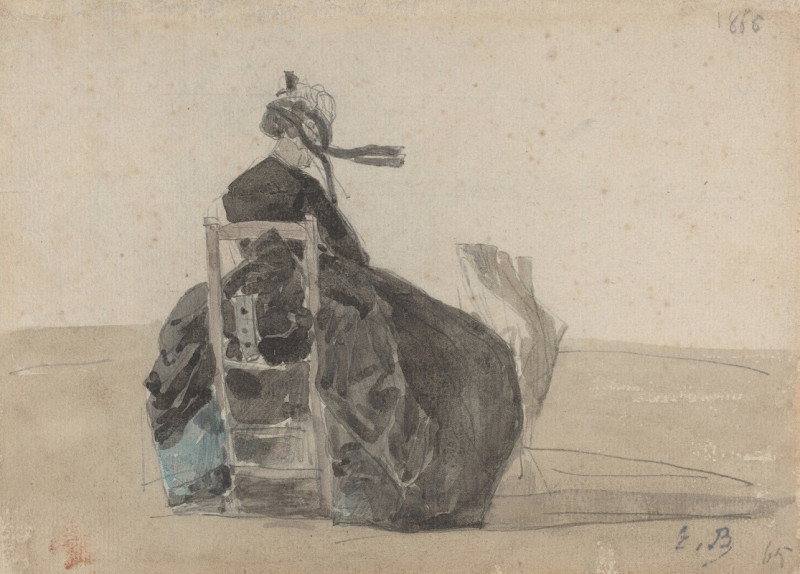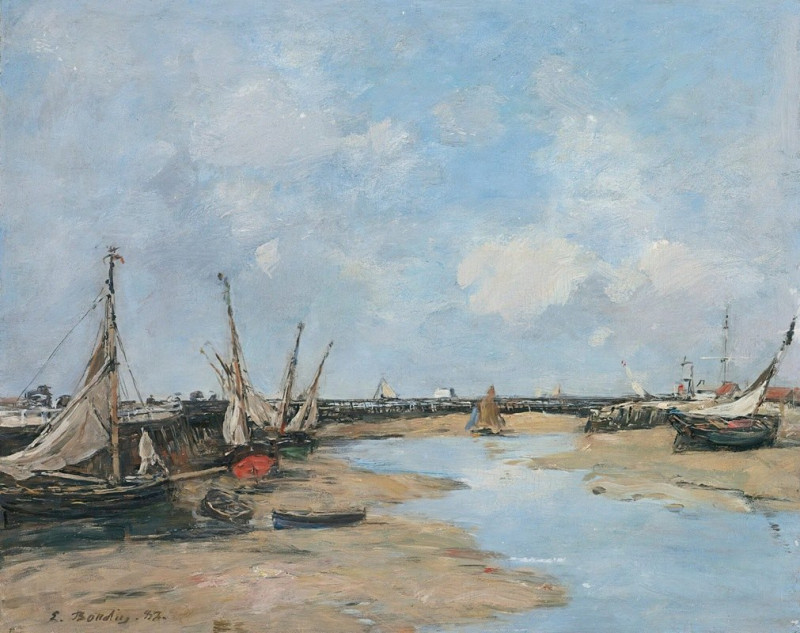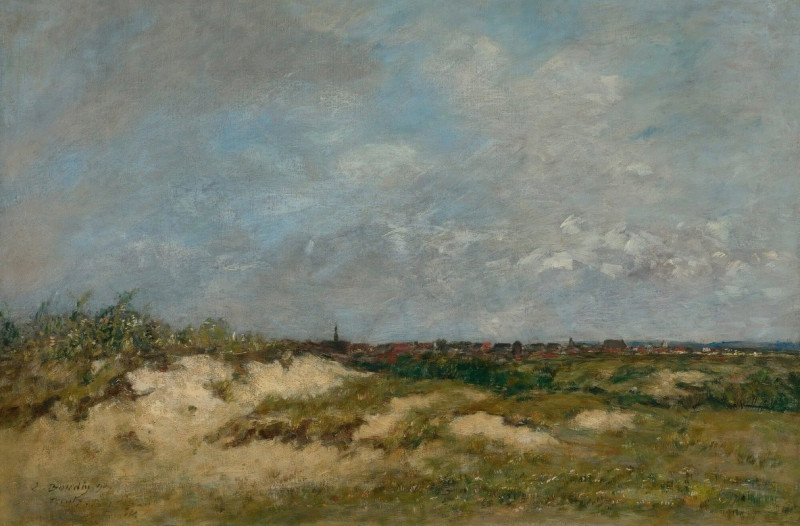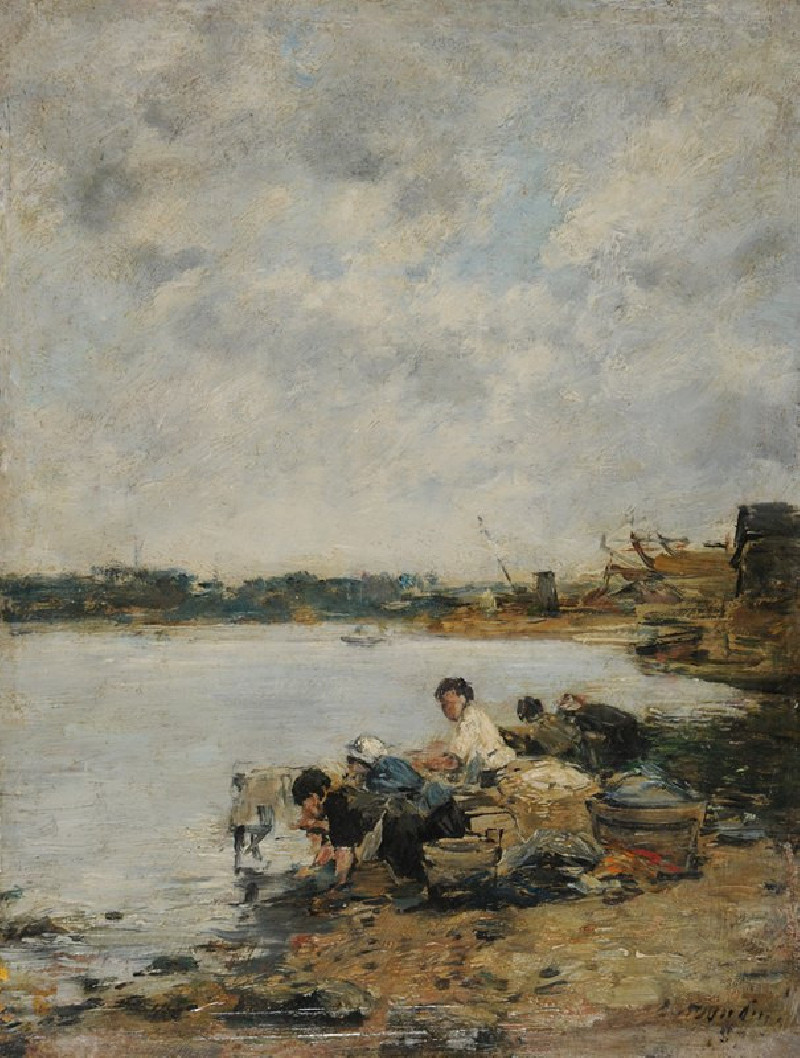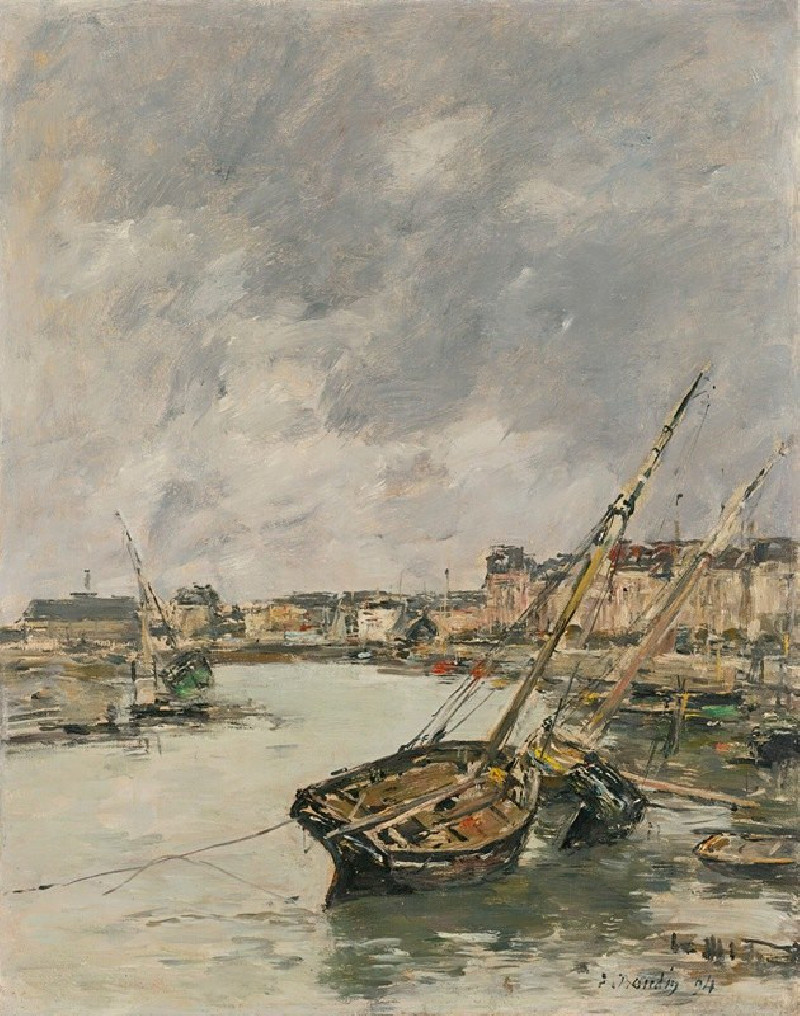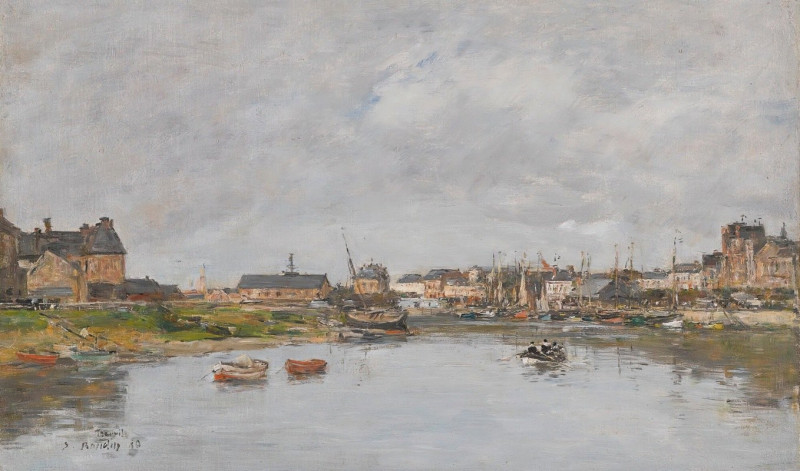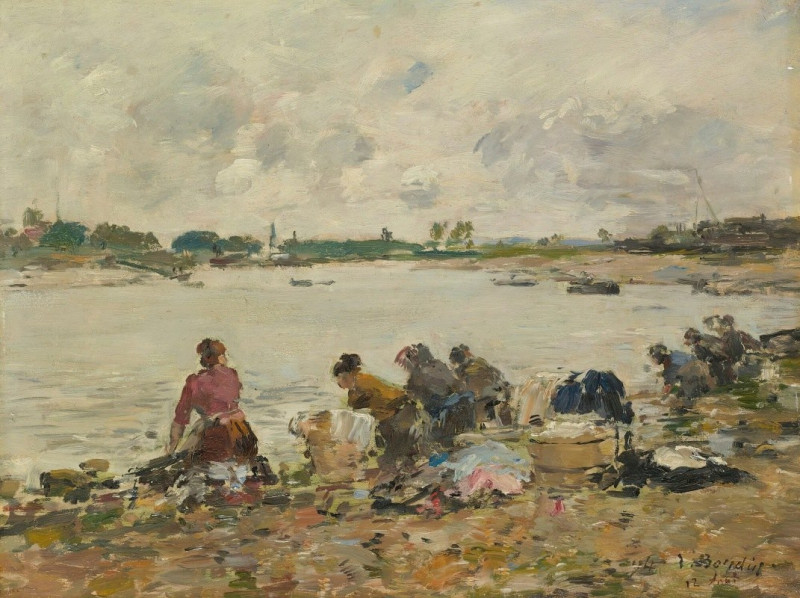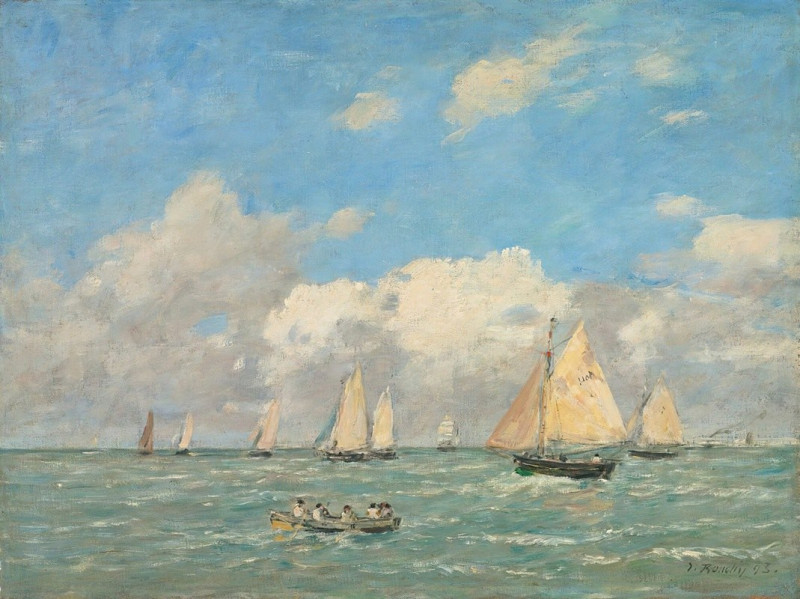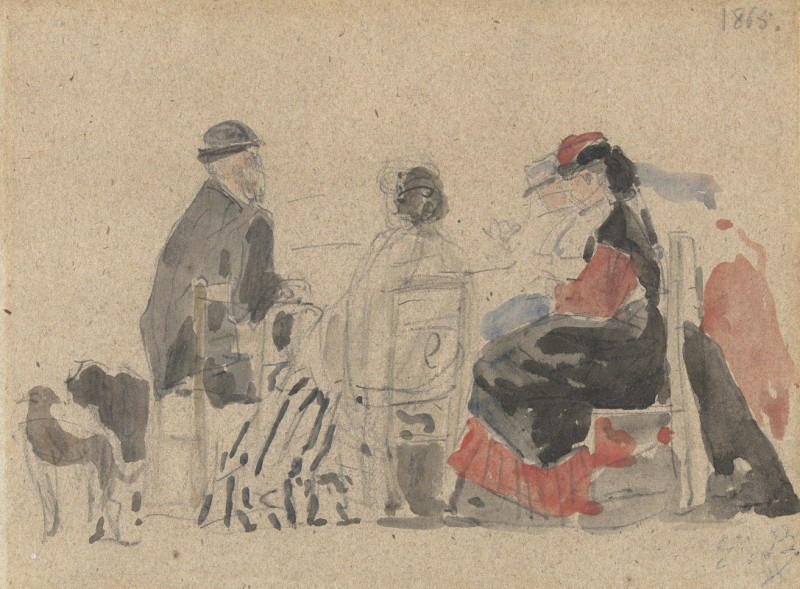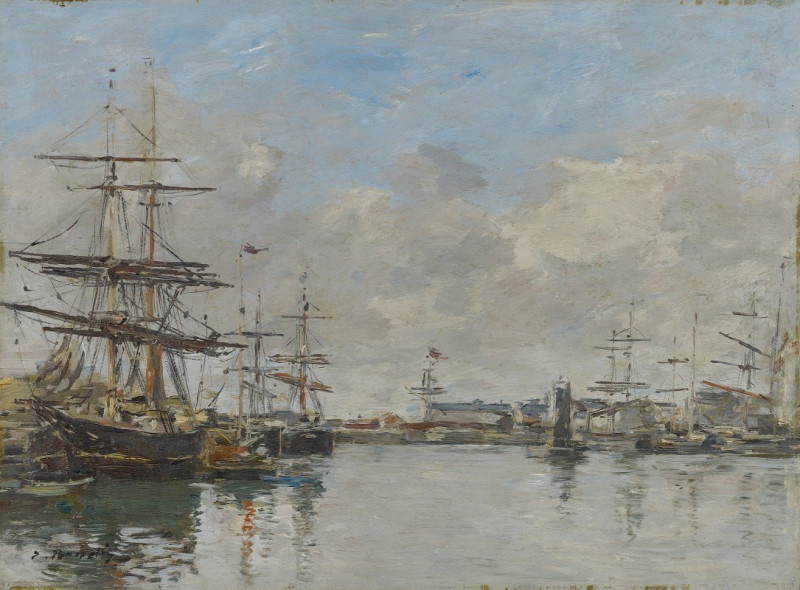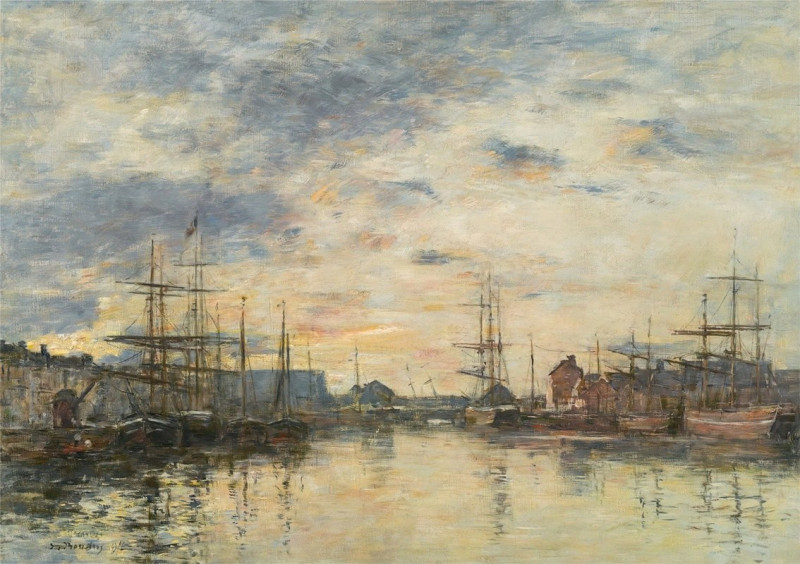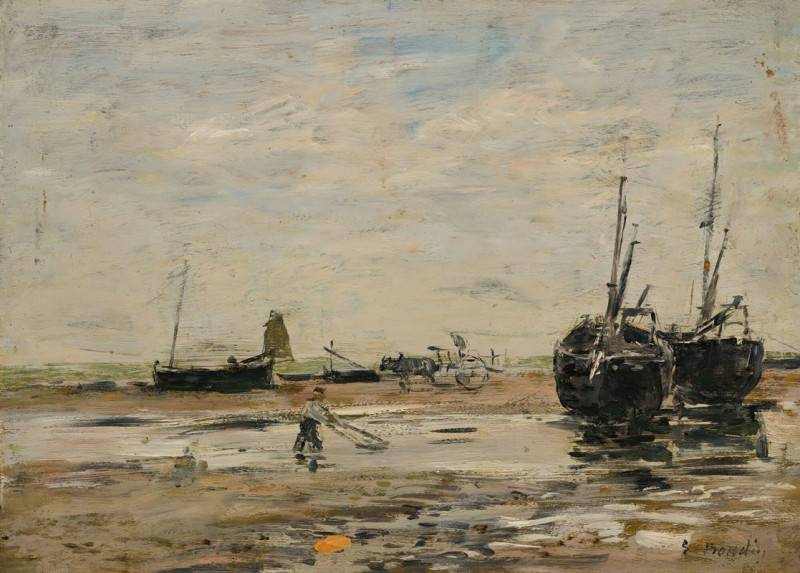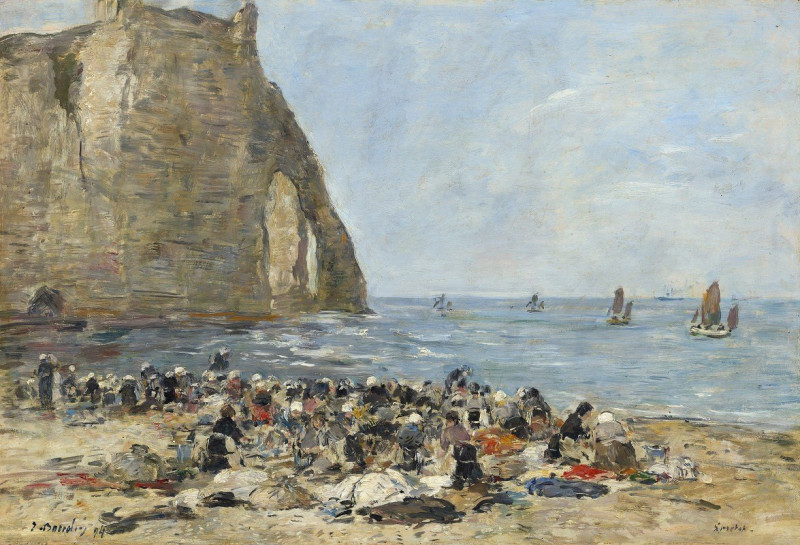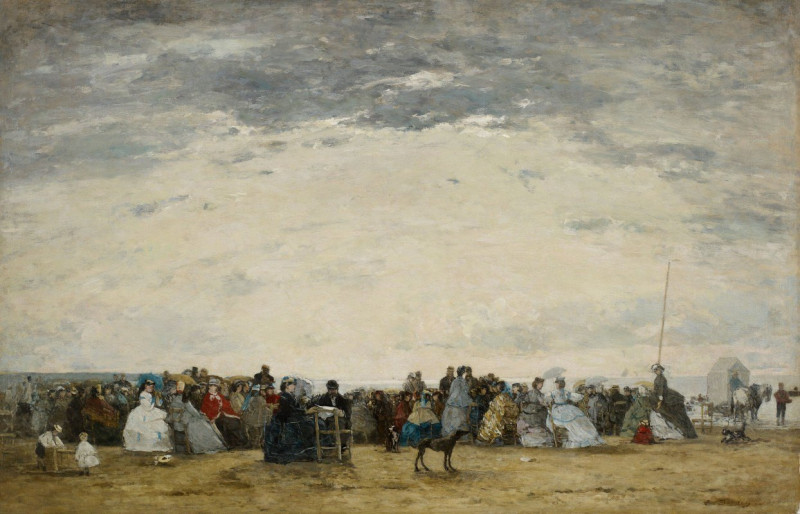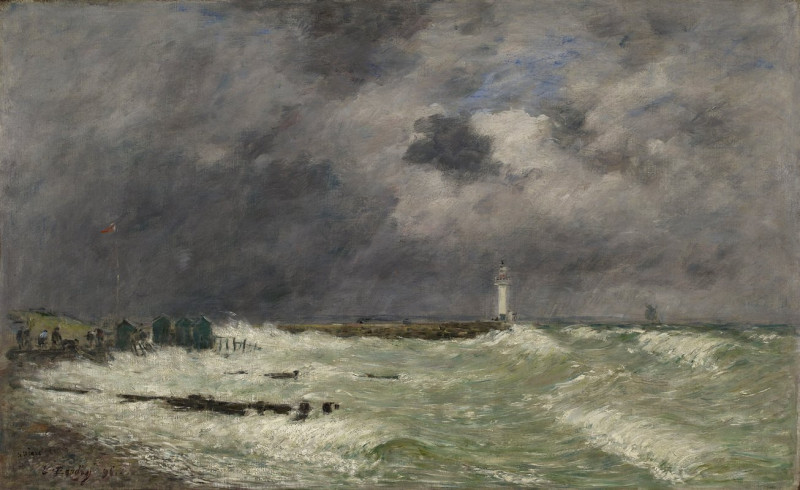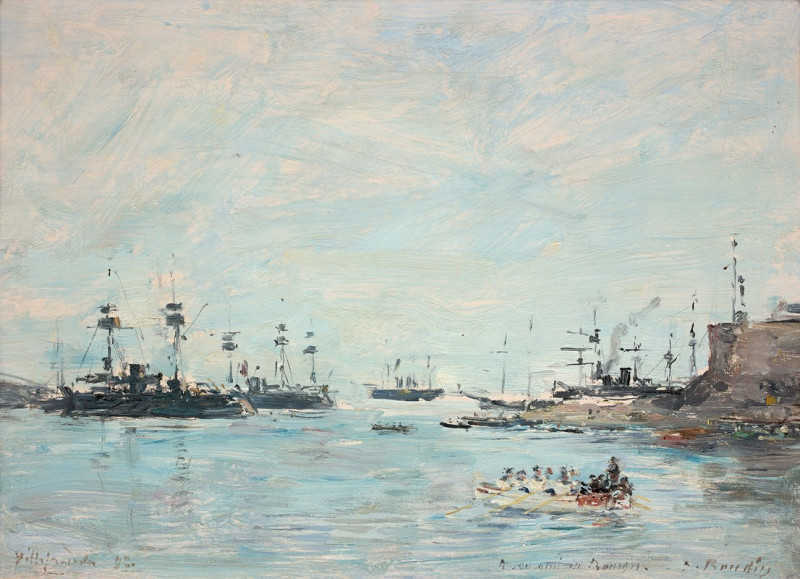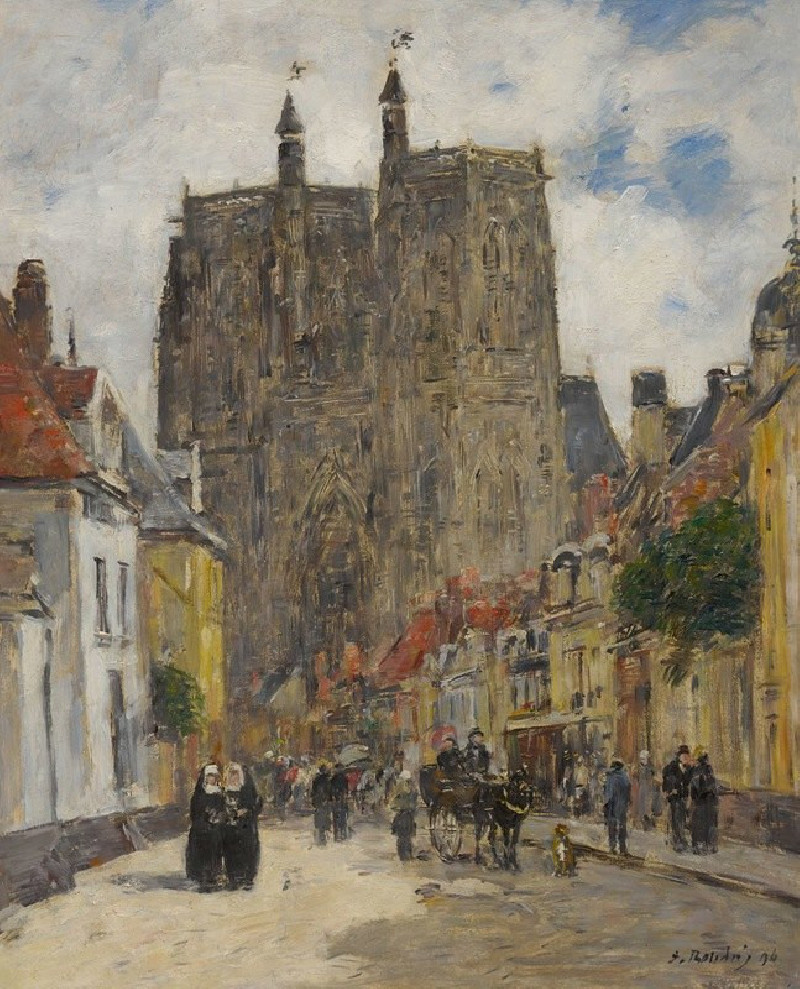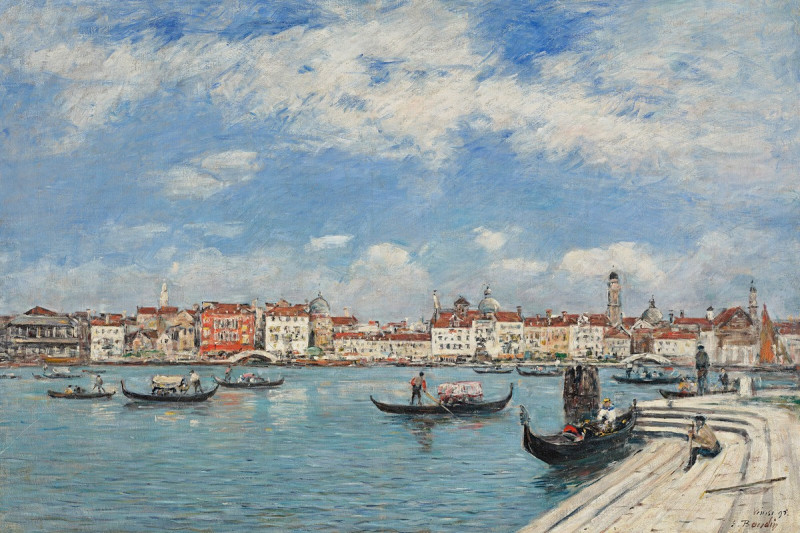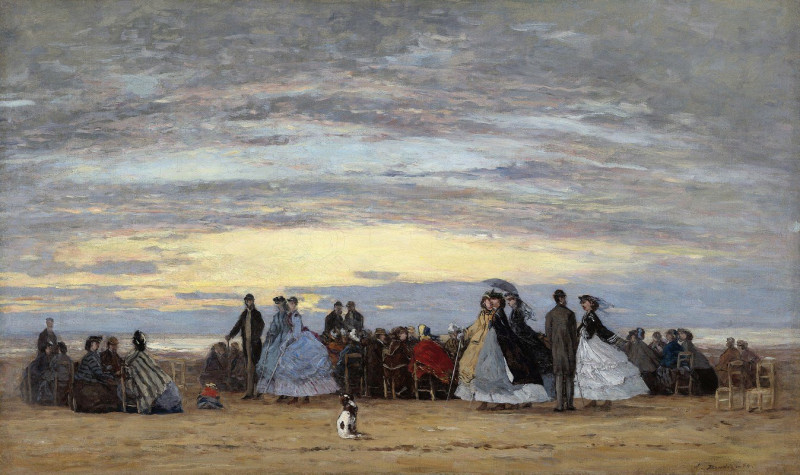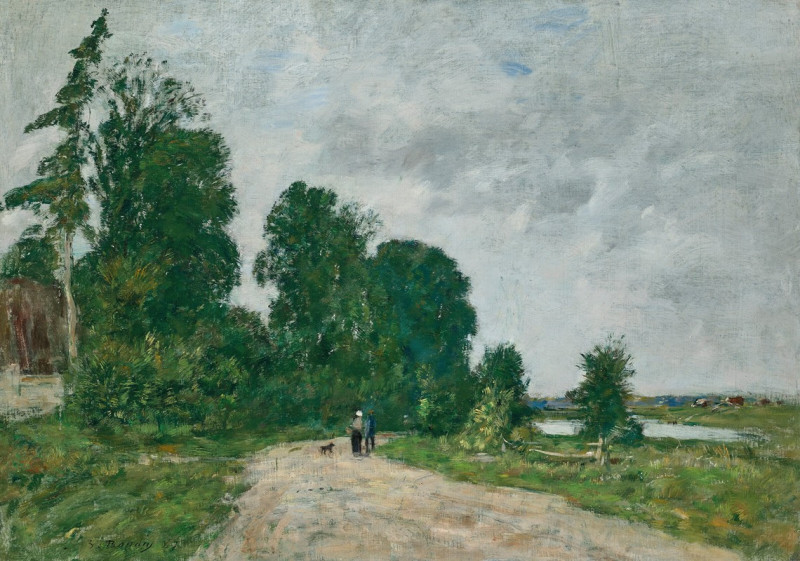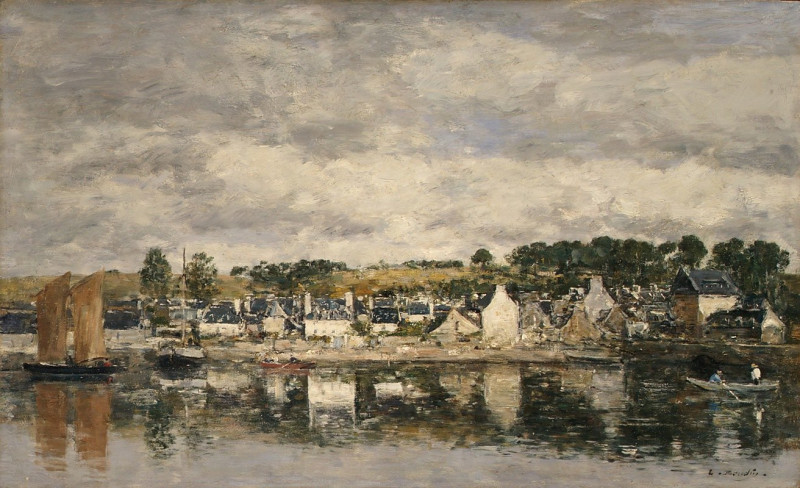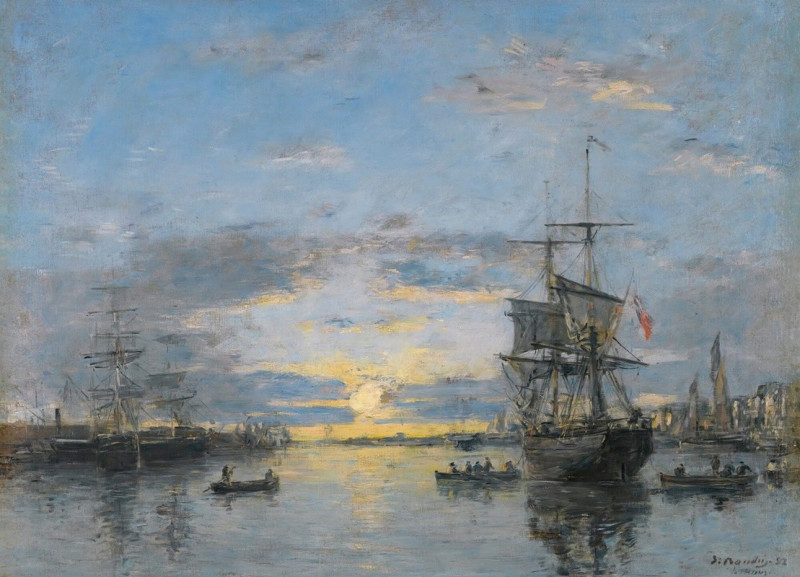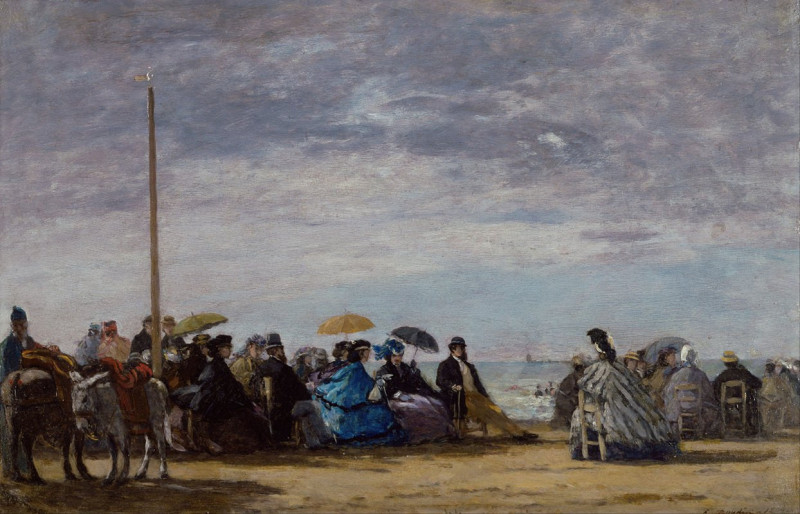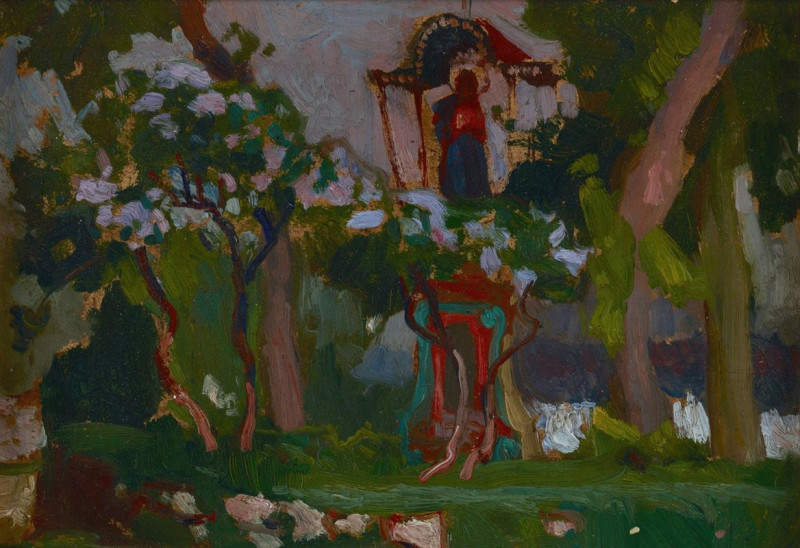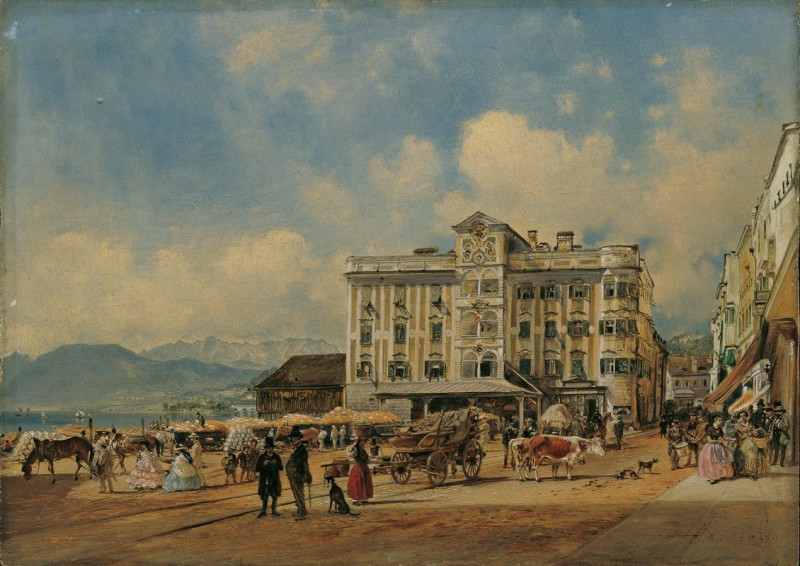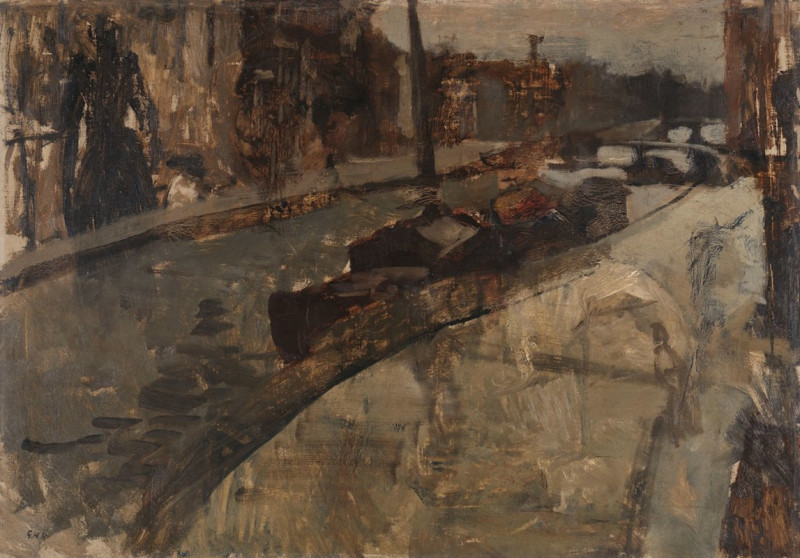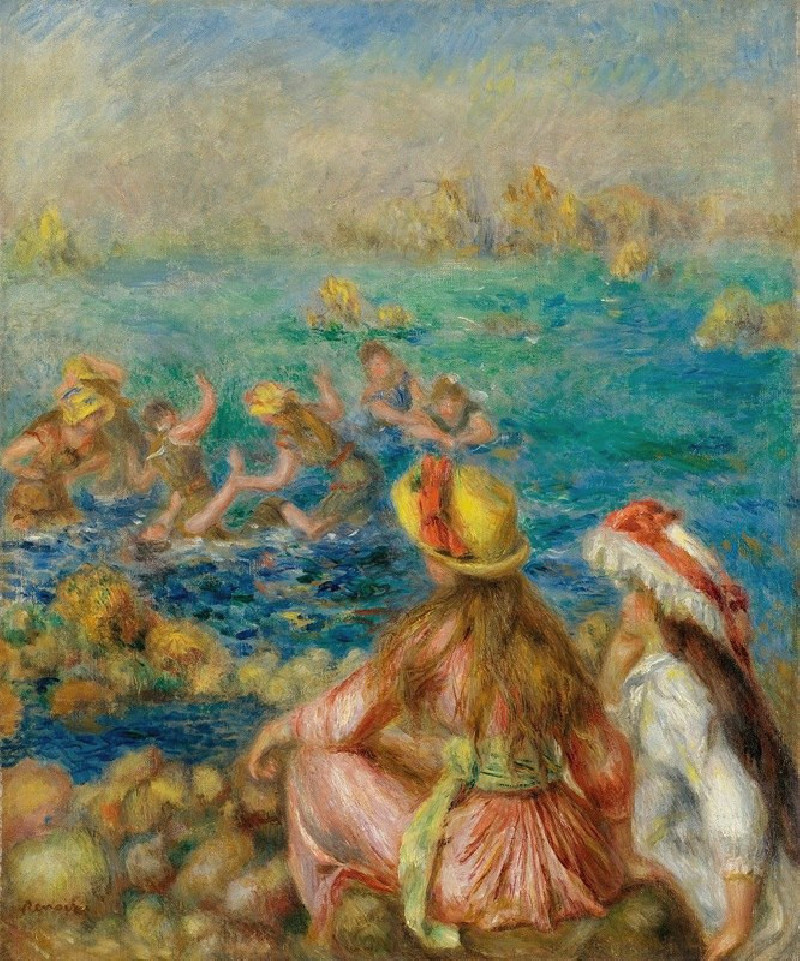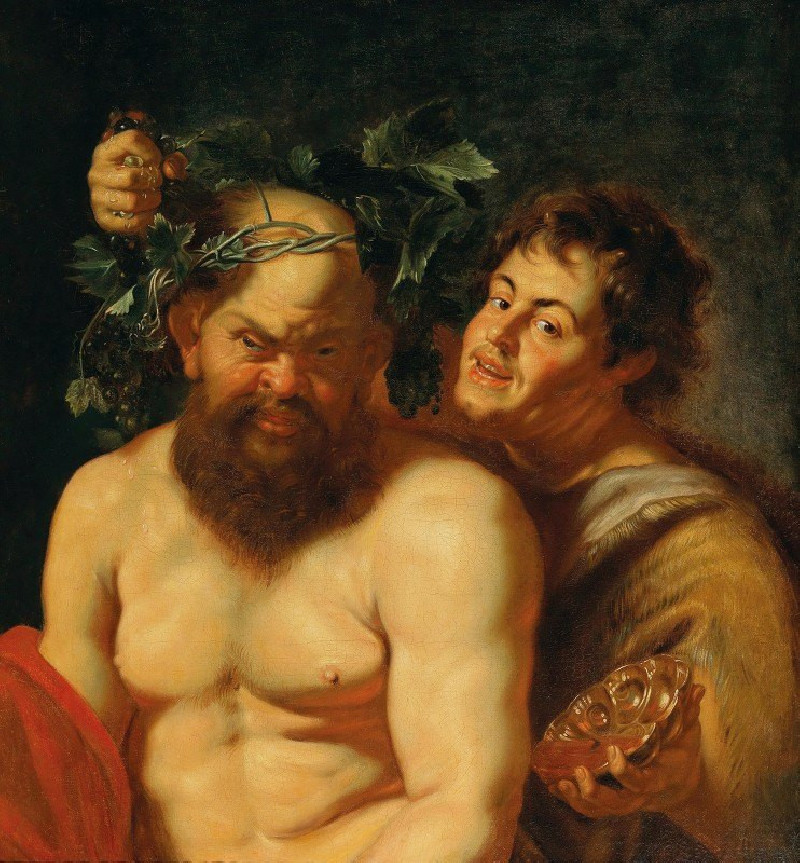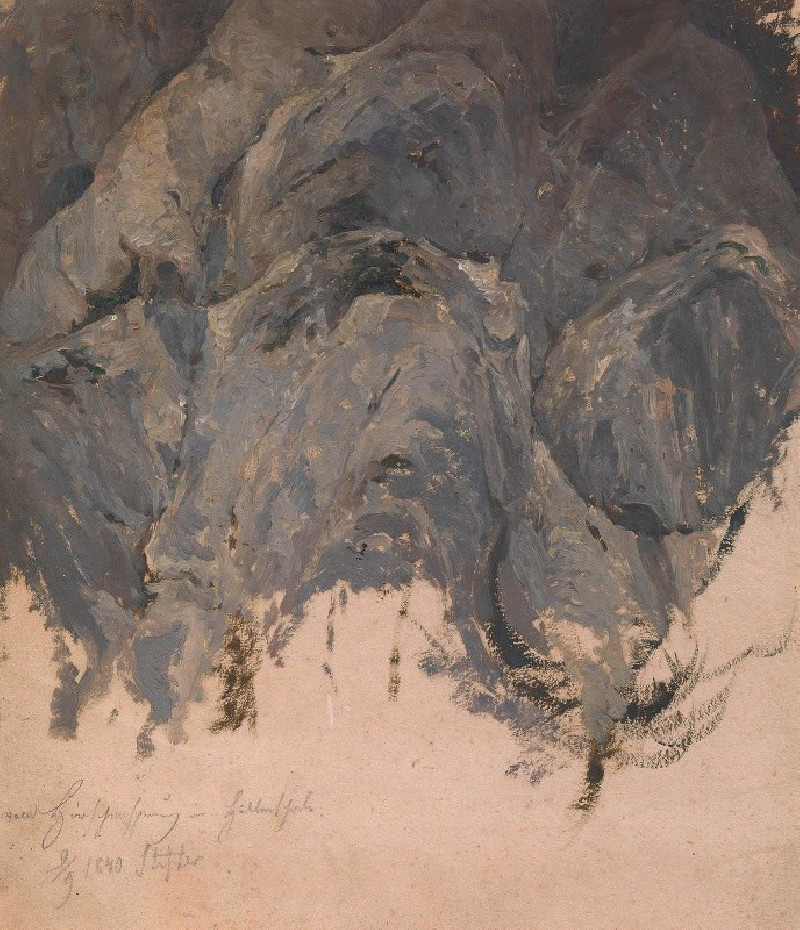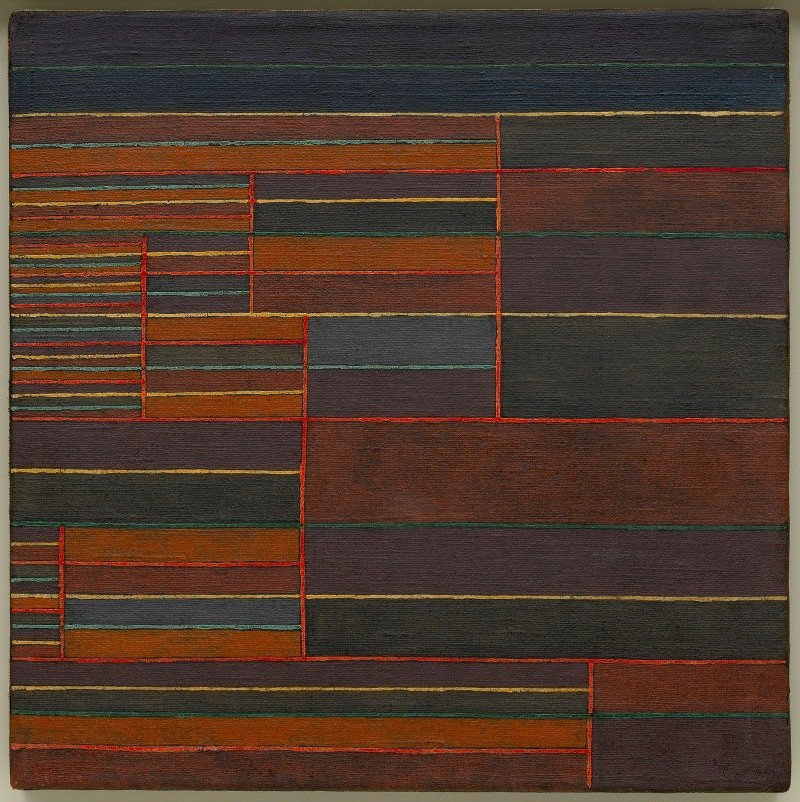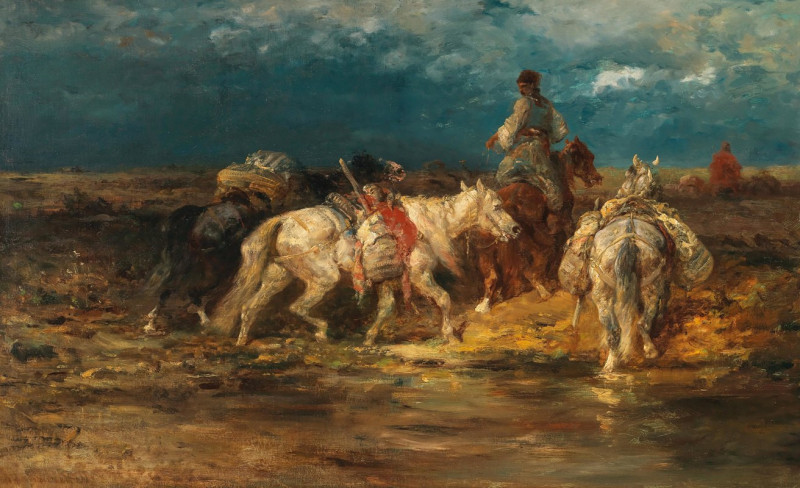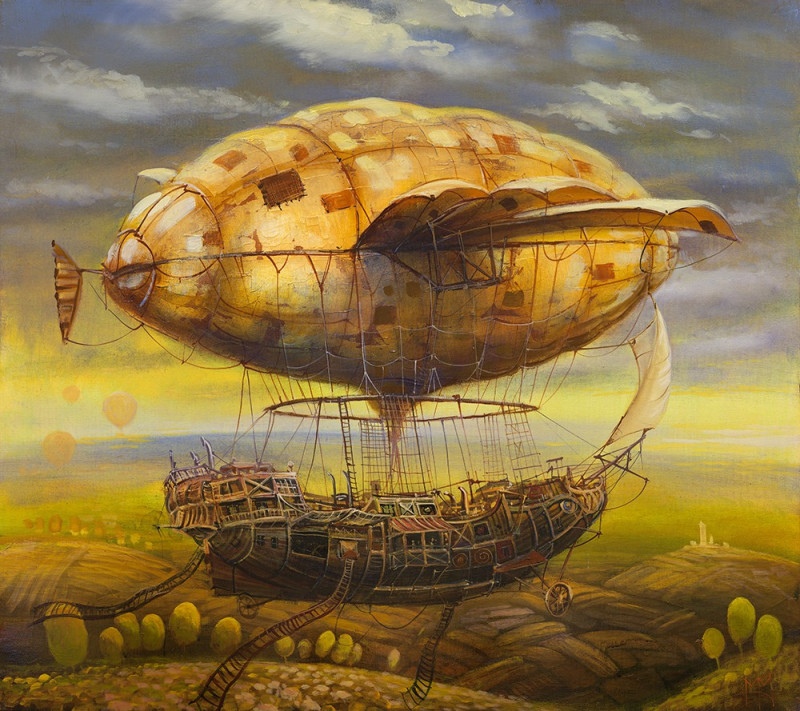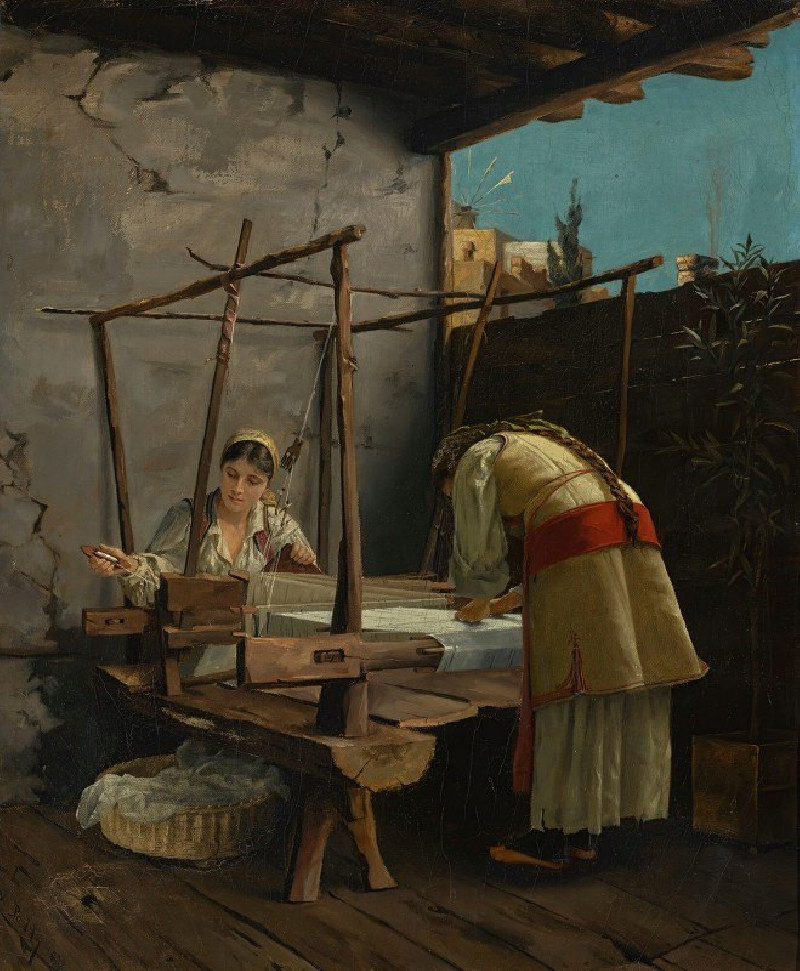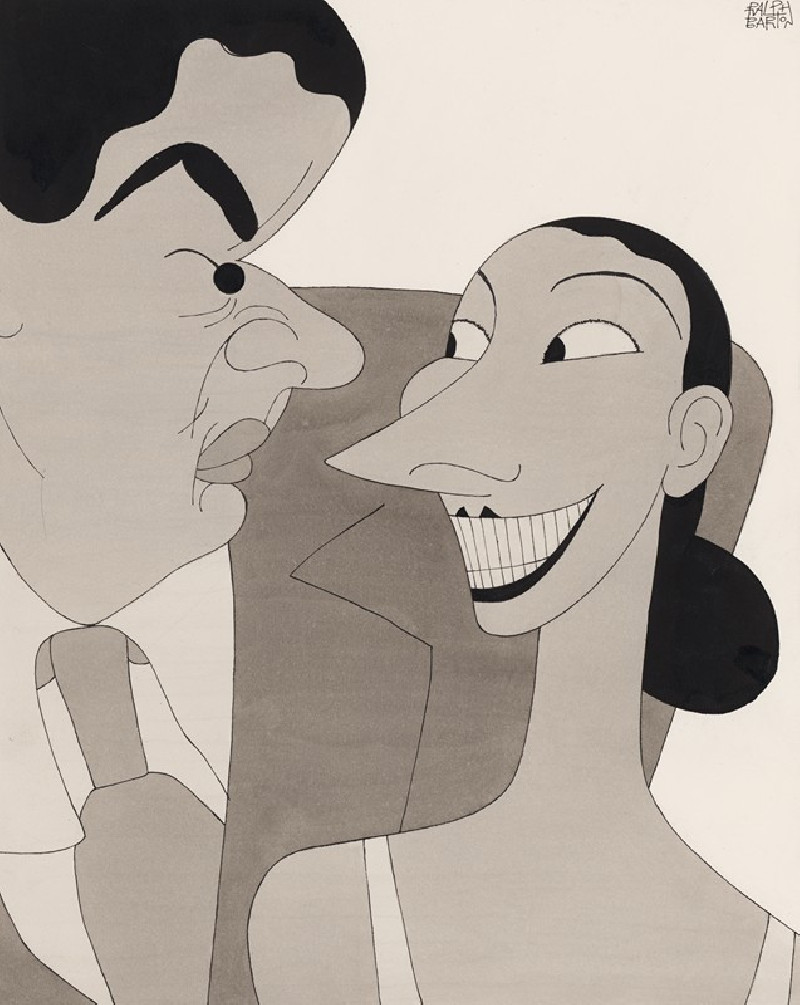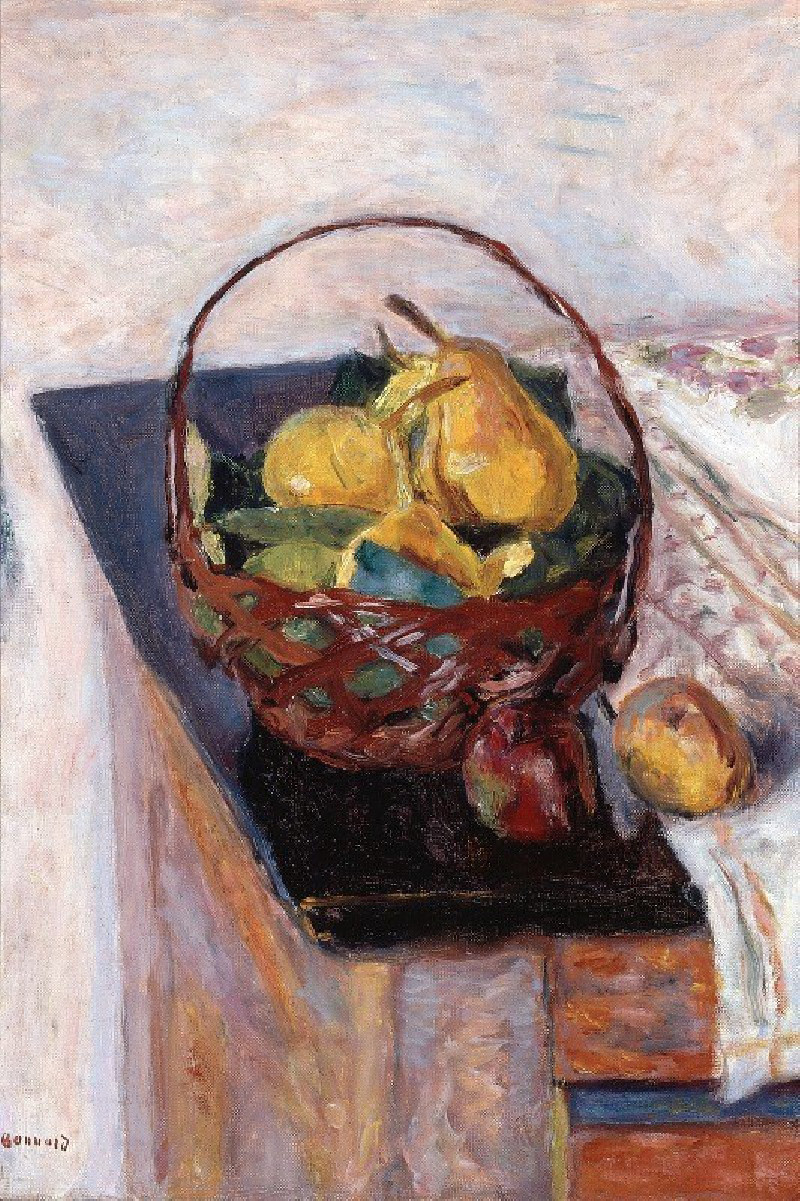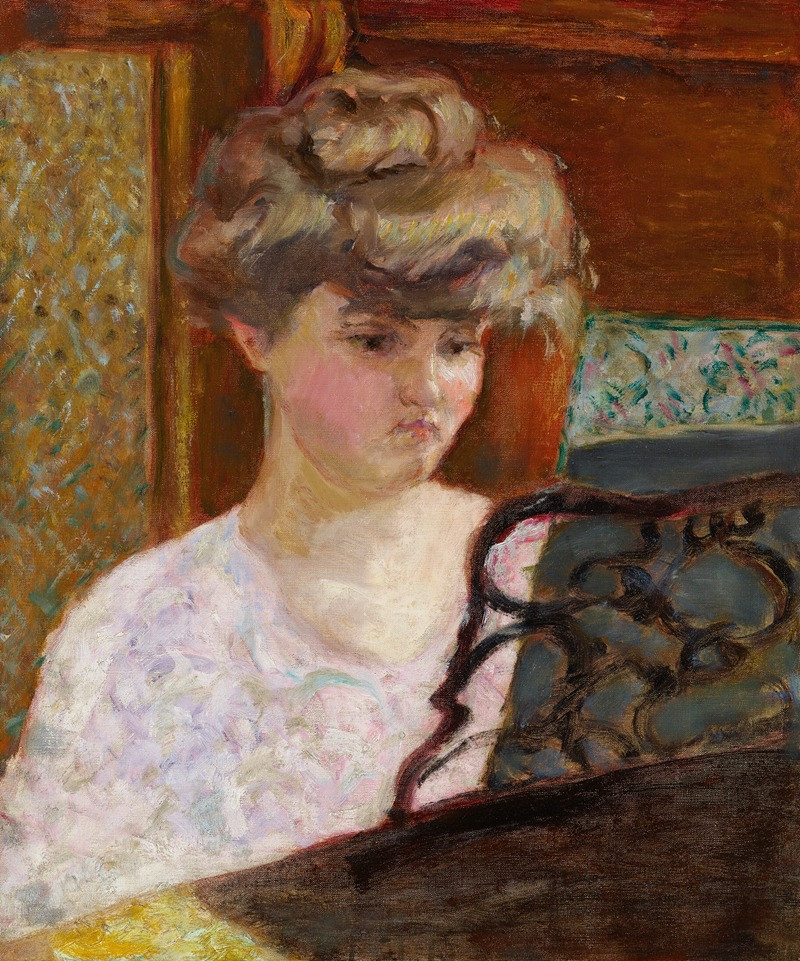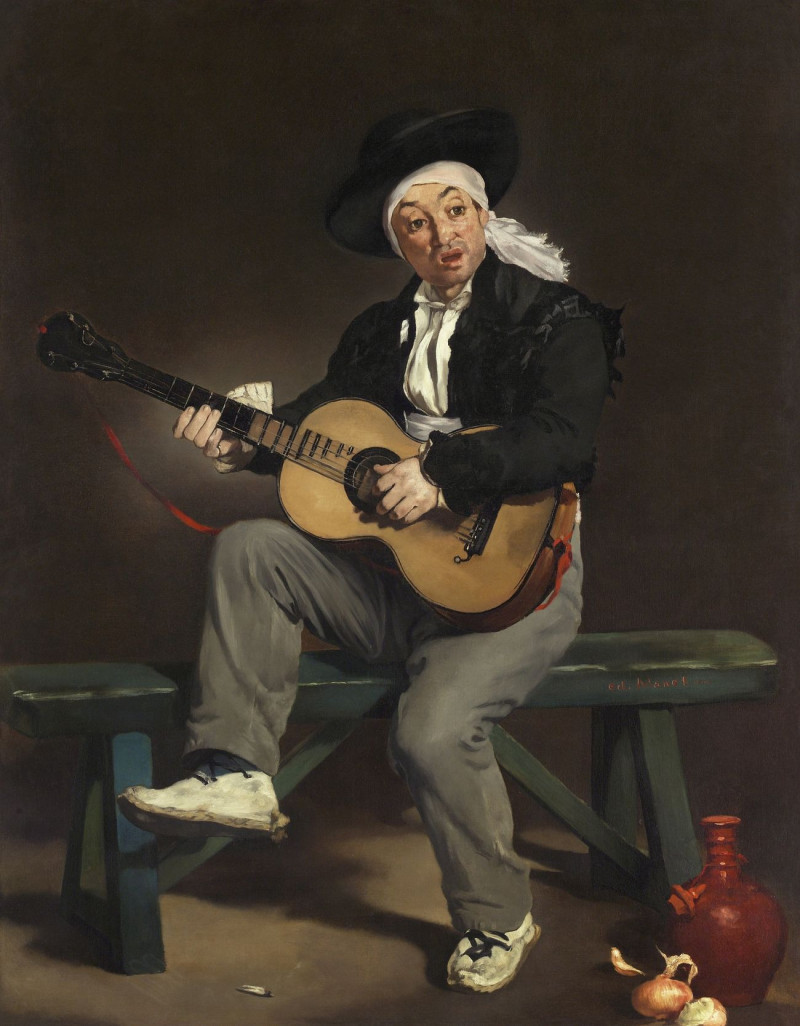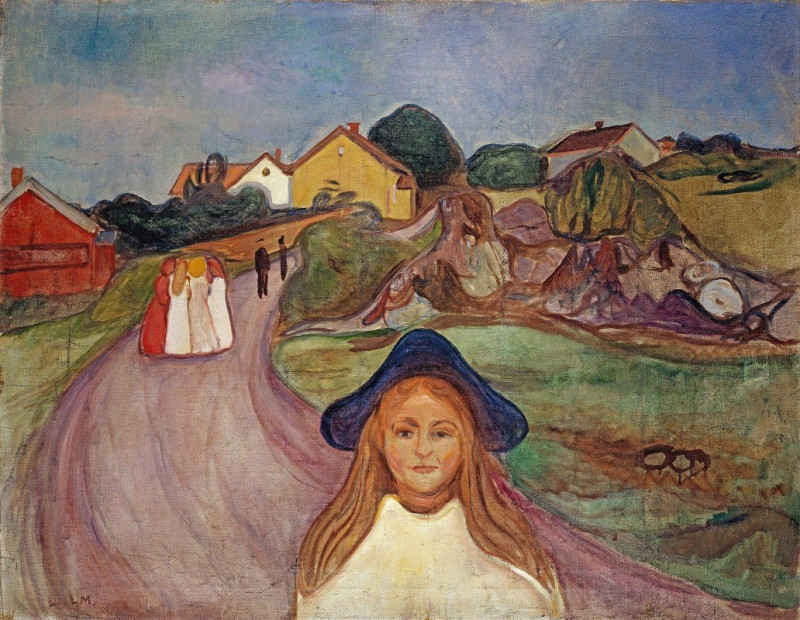Bathing Time at Deauville (1865)
Technique: Giclée quality print
Recommended by our customers
More about this artwork
"Bathing Time at Deauville" is a captivating painting by French artist Eugène Boudin, created in 1865. Belonging to the Impressionist era which prized capturing moments under natural light and atmospheric conditions, this painting beautifully evokes a summer's day at the beach in Deauville, a popular French resort town.The scene Boudin sets is both lively and serene, illustrating a variety of visitors enjoying the seaside. To the left, groups of elegantly dressed men and women are seated or standing near simple, white bathing cabins that line the shore, providing a genteel social atmosphere. These figures, adorned in the period's fashion, contribute to a sense of leisurely refinement.The central focus of the scene is on the groups of people—some are engaging in conversation, while others are quietly observing the surroundings. Notably present is a horse and a cart, and a sole rider on a horse, which were typical elements of beach scenes of this period. In the background, people in smaller, less detailed forms wade and swim near the water's edge, enjoying the cool sea under a muted, overcast sky.Boudin’s skill lies in his ability to capture the light and mood of the beach setting. The soft, diffuse light suggests a hazy summer day, with subtle marine hues of blue and gray dominating the canvas, reinforced by the sandy tones of the beach itself. His brushwork provides texture and movement, giving life to the coastal breeze and tranquil activity."Bathing Time at Deauville" is a remarkable example of Boudin’s influence on Impressionism, showcasing his mastery in plein air painting—a method that captures scenes outdoors with a keen observation of natural light and color.
Delivery
Returns
Eugène Louis Boudin (12 July 1824 – 8 August 1898) was one of the first French landscape painters to paint outdoors. Boudin was a marine painter, and expert in the rendering of all that goes upon the sea and along its shores. His pastels, summary and economic, garnered the splendid eulogy of Baudelaire; and Corot called him the "King of the skies".

